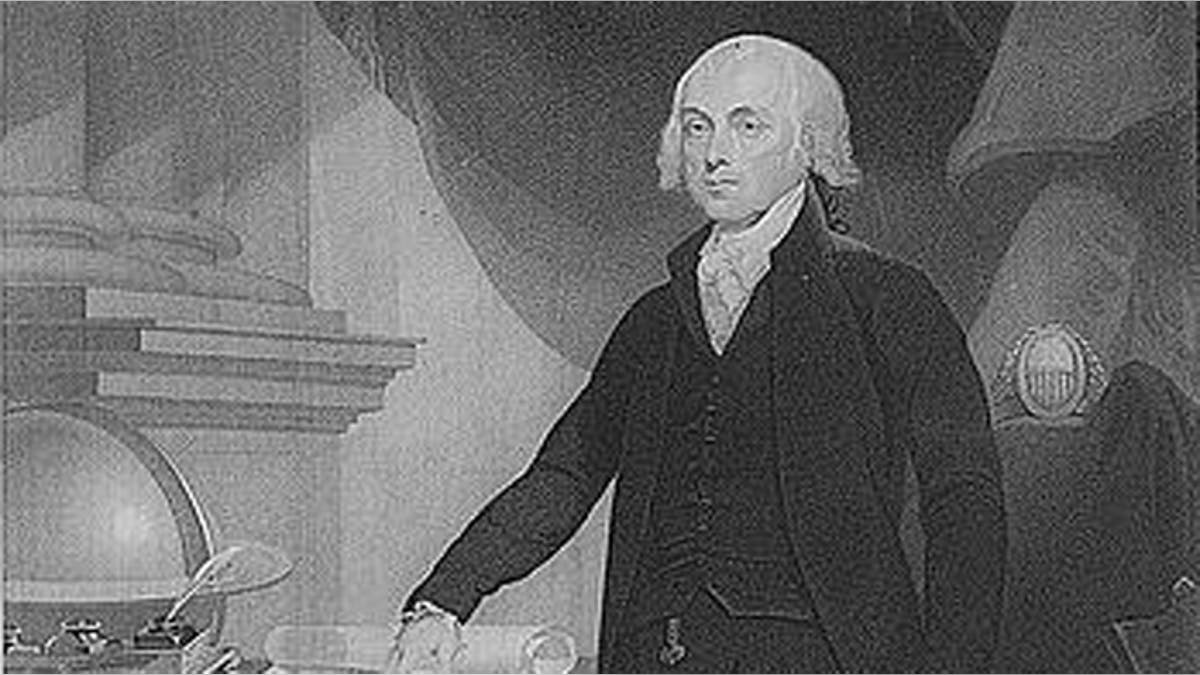
(Library of Congress)
A federal district judge ruled on Monday that the National Security Agency program tracking all Americans’ phone calls is “probably unconstitutional.” In Klayman v. Obama, Judge Richard J. Leon of the U.S. District Court for the District of Columbia held that “such a program infringes on ‘the degree of privacy’ that the Founders enshrined in the Fourth Amendment.”
Appealing to the nation’s founding ideals, he continues, “the author of our Constitution, James Madison, who cautioned us to beware ‘the abridgement of freedom of the people by gradual and silent encroachments by those in power,’ would be aghast.”
While Judge Leon spends mere sentences on this history, it is a crucial point that directly impacts pending cases challenging NSA surveillance programs.
[pullquote]
“Perhaps it is a universal truth,” James Madison wrote Thomas Jefferson in 1798, “that loss of liberty at home is to be charged against provisions against danger, real or pretended, from abroad.” With revelations about the NSA not only capturing American citizens’ communications but also sharing them abroad, we should stop and ask ourselves whether we are proving Madison correct.
The manner in which our nation confronts the very real dangers we face will determine Americans’ future liberties — or lack thereof. As the nation strives to balance our liberty versus our safety, we might consider our founding principles. And those principles, to which Judge Leon astutely alludes, suggest we demand greater oversight of the NSA’s domestic activities.
The Founders applauded efforts to keep a close watch on foreign nationals using all tools at our disposal; nevertheless, they would take issue with the fact that untold millions of private American citizens are swept into the dragnet as well. The patriots fought the Revolution to rid the United States of unjust government intrusion, after all.
As commander in chief during the American Revolution, George Washington was not shy about collecting intelligence, explaining that “It is by comparing a variety of information, we are frequently enabled to investigate facts, which were so intricate or hidden, that no single clue could have led to the knowledge of them.”
He ferociously hunted America’s enemies, using varied and ingenious methods — but he did so while guarding citizens’ rights.
In what was perhaps the 18th Century version of today’s NSA programs, the founders intercepted the private mail of Americans loyal to the crown. However, the patriots targeted specific individuals and guarded against abuses. Rather than secretive national government agencies, they sought to ensure transparent republican oversight over the process.
The Continental Congress ensured that local committees and their designees oversaw this mail surveillance while attempting to maintain secrecy of the intelligence gathered.
Such transparency and widespread oversight protected against abuses and stands in stark contrast to the largely unchecked Foreign Intelligence Surveillance Court and internal NSA audits.
While we may decide as a nation that the current NSA activities are less intrusive than the searches of yesteryear, these programs are worth our scrutiny due to the precedents they set.
The FISA Court has already found that the NSA violated the Fourth Amendment while collecting data on domestic fiber-optic cables.
How many more violations have there been of which we do not yet know?
At our nation’s birth, the founding generation sought to guard against secret government surveillance lacking in oversight and accountability. Times and technology will continue to change, but our values should not.
We might look to our founders for guidance on how to respond to security challenges while remaining faithful to our nation’s core constitutional principles.
As the James Madison warned in 1792, “Where an excess of power prevails . . . [n]o man is safe in his opinions, his person, his faculties, or his possessions.”
